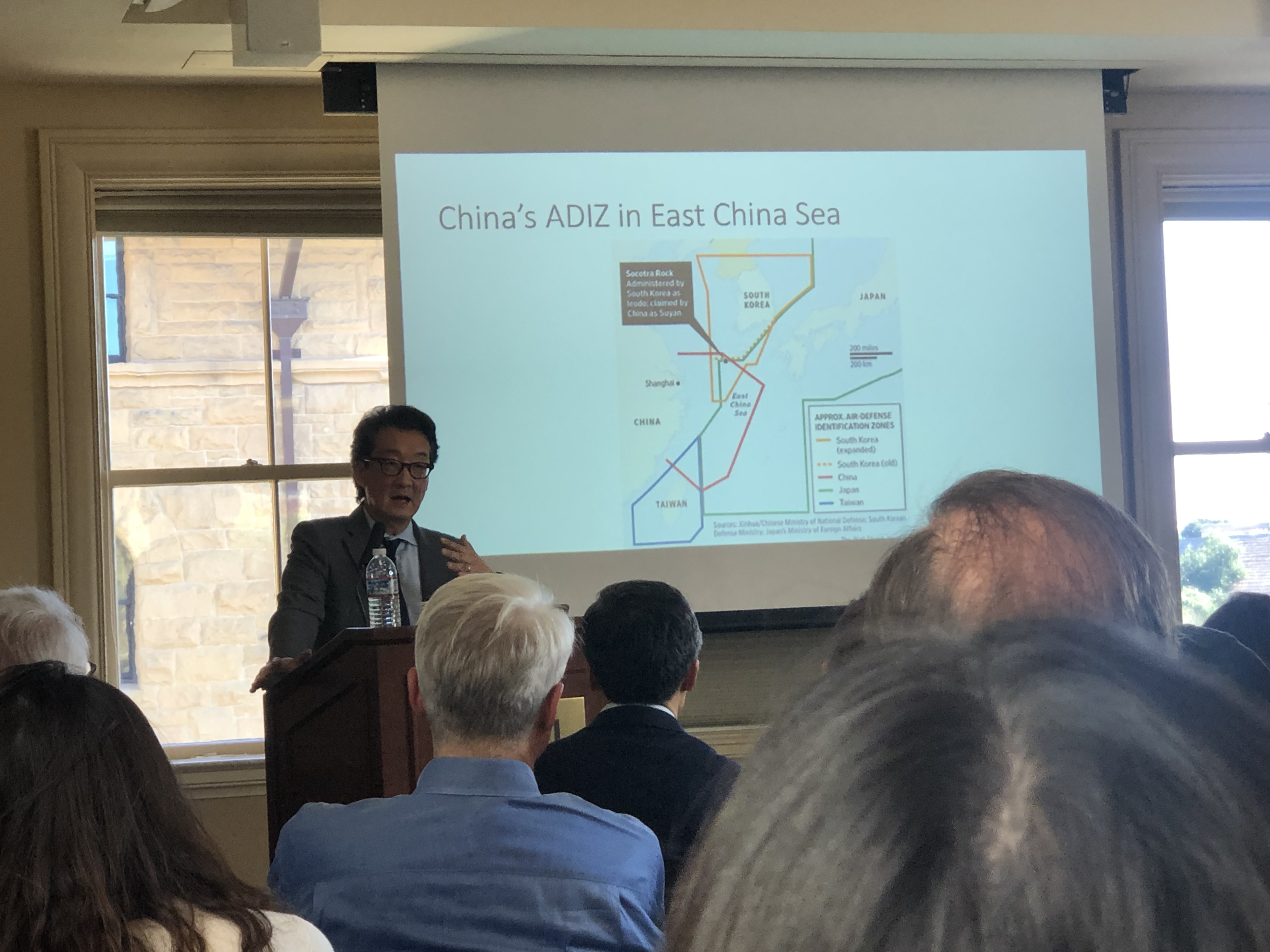In his Friday talk “Binary Choices: U.S.-China Strategic Competition and the Korean Peninsula,” Georgetown professor Dr. Victor Cha, a visiting scholar at Stanford, shared insights from his research about East Asian regional powers’ reaction to the U.S.-China rivalry. Cha formerly served on the National Security Council staff from 2004-07 and as the Deputy Head of Delegation for the United States at the Six-Party Talks in Beijing.
Cha said that South Korea, which has maintained a unique, long-standing alliance with the U.S., can be a “laboratory for testing how binary choices affect [its allies] in Asia.”
“If a country like South Korea tilts in China’s direction,” Cha said, “this would suggest others less tied to the U.S. would succumb to China’s pressure as well.”
As China continues to challenge U.S. supremacy in East Asia, countries like South Korea will be forced to make decisions that would favor one superpower over the other, Cha said. He argued that Washington should be more attentive to which way Seoul is tilting in a particular geopolitical moment.
To corroborate his claim, Cha shared his analysis of nine occasions between 2013 and 2019, in which Seoul made a choice among three options: to side with the U.S. (“link”), to flip and side with China (“delink”) and to defer its decision (“hedge”).
Over the past seven years, Seoul delinked from Washington in six out of nine cases, Cha claimed. These examples include territorial disputes in the South China Sea in 2015 and the U.S. blacklisting of Huawei as part of its trade war with China last year. In each case, Seoul responded to Washington’s lobbying with ambivalence and disregard.
Cha claimed policymakers should consider how the reactions of East Asian regional powers like South Korea affect the escalating rivalry between Washington and Beijing. Evaluating the costs and benefits of pressuring allies to adopt pro-American policies would also help the U.S. set a realistic strategy for East Asian diplomacy, Cha said.
“When [allies] are forced to make choices, the United States might not like the choices that are being made,” he said. “Then the question becomes: Are we calculating that liability into our strategy?”
About 120 faculty members, researchers and students were present at the talk, which was part of a series hosted by the Korea Program at Stanford’s Shorenstein Asia-Pacific Research Center.
The next talk in the series will be given by Jungmin Lee, a professor of economics at Seoul National University, on Feb. 7. Lee will discuss findings from his research on the Korean minimum wage and employment dynamics.
Contact Won Gi Jung at jwongi ‘at’ stanford.edu.
